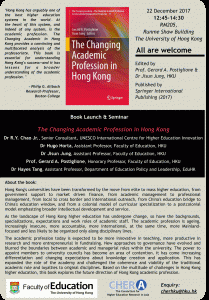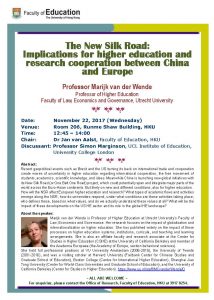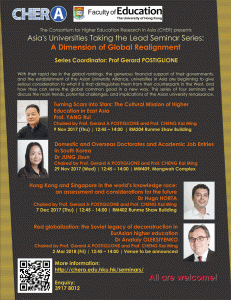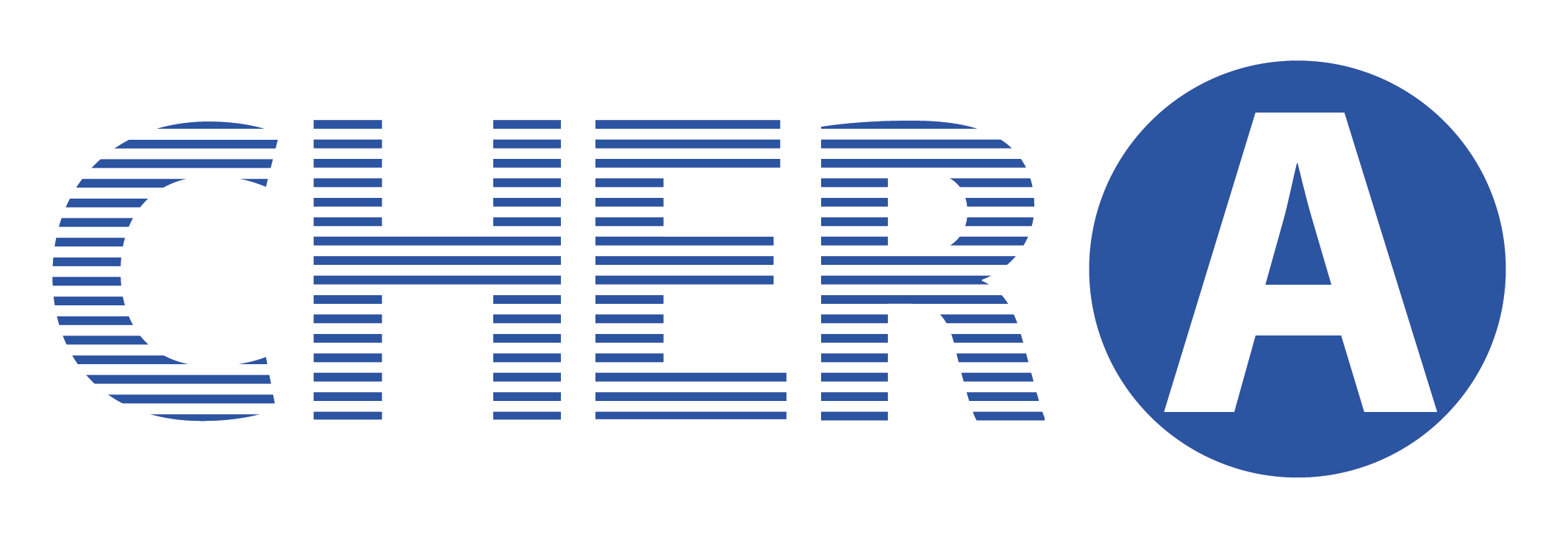What factors influence PhD students’ intentions to work outside academia?
Hugo Horta, University of Hong Kong
Overview
Doctoral studies have been changing, and although a PhD continues to be a degree mostly focused on research, it has been shaped to confer PhD students with broader sets of skills, intended to prepare them for jobs outside the academic sector.
This change results from two intertwined trends. First, the transformation of universities into engines of knowledge, associated with rising audit cultures (mostly based on metrics), stagnating public funding, and the relevance of the research mission.
Second, the traditional job market for PhDs, the academic job market, has been seeing throughout the world a decreasing number of professoriate positions relative to a growing massification of doctorates. Universities benefit from having PhD students, and students demand PhD degrees. This dynamic is to continue, even if the result so far is an increased number of PhD holders in contingent, precarious positions.
This research looks at PhD students at three Asian flagship universities (National University of Singapore, The University of Hong Kong, and Seoul National University) and analyses the determinants that shape the preferences for them to choose career paths outside academia upon conclusion of their PhD.
The findings are expected to contribute not only to the academic literature (studies of this nature in Asia are scarce) but also possibly raise polemic policy implications.
Booking
All seminars are free and open to the public. No advance booking required.
Note
You can register to watch the livestream of this seminar.

The Changing Academic Profession in Hong Kong
22 December 2017
12:45-14:30
RM205, Runme Shaw Building, HKU
A Book Launch & Seminar by
Dr R.Y. Chao Jr., Senior Consultant, UNESCO International Centre for Higher Education
Dr Hugo Horta, Assistant Professor, Faculty of Education, HKU
Dr Jisun Jung, Assistant Professor, Faculty of Education, HKU
Prof. Gerard A. Postiglione, Honorary Professor, Faculty of Education, HKU
Dr Hayes Tang, Assistant Professor, Department of Education Policy and Leadership, EduHK
About the book:
Hong Kong’s universities have been transformed by the move from elite to mass higher education, from government support to market driven finance, from academic management to professional management, from local to cross border and international outreach, from China’s education bridge to China’s education window, and from a colonial model of curricular specialization to a postcolonial model emphasizing broader intellectual development and service.
As the landscape of Hong Kong higher education has undergone change, so have the backgrounds, specializations, expectations and work roles of academic staff. The academic profession is ageing, increasingly insecure, more accountable, more international, at the same time, more Mainland-focused and less likely to be organized only along disciplinary lines.
The academic profession today is expected to be more innovative in teaching, more productive in research and more entrepreneurial in fundraising. New approaches to governance have evolved and blurred the boundaries between academic and managerial roles within the university. The power to appoint members to university councils has become an area of contention. It has come increasing differentiation and changing expectations about knowledge creation and application. This has expanded the role of the academy and challenged the coherence and viability of the traditional academic role and loyalties to original disciplines. Based on the multitude of challenges in Hong Kong higher education, this book explores the future direction of Hong Kong academic profession.
Enquiry: 3917 8012
______________________________________________________________________________________________________________________________________

The New Silk Road:
Implications for higher education and research cooperation between China and Europe
Professor Marijk van der Wende
Professor of Higher Education
Faculty of Law, Economics and Governance, Utrecht University
November 22, 2017 (Wednesday)
Room 206, Runme Shaw Building, HKU
12:45 – 14:00
Chair: Dr Jan van Aalst
Discussant: Professor Simon Marginson
Abstract:
Recent geopolitical events such as Brexit and the US turning its back on international trade and cooperation create waves of uncertainty in higher education regarding international cooperation, the free movement of students, academics, scientific knowledge, and ideas. Meanwhile China is launching new global initiatives with its New Silk Road (or One Belt One Road) project, which could potentially span and integrate major parts of the world across the Euro-Asian continents. But likely on new and different conditions, also for higher education. How will the NSR affect European higher education and research? What types of academic flows and activities emerge along the NSR, how do universities respond, under what conditions are these activities taking place, who defines these, based on what values, and do we actually understand these values at all? What will be the impact of these developments on the US HE sector and its role in the global HE landscape?
About the speaker:
Marijk van der Wende is Professor of Higher Education at Utrecht University’s Faculty of Law, Economics and Governance. Her research focuses on the impact of globalization and internationalization on higher education. She has published widely on the impact of these processes on higher education systems, institutions, curricula, and teaching and learning arrangements. She is also an affiliate faculty and research associate at the Center for Studies in Higher Education (CSHE) at the University of California Berkeley and member of the Academia Europaea (the Academy of Europe, section behavioral sciences). She held full professorial positions at VU University Amsterdam (2006-2015), the University of Twente
(2001-2016), and was a visiting scholar at Harvard University (Fairbank Center for Chinese Studies and Graduate School of Education), Boston College (Centre for International Higher Education), Shanghai Jiao Tong University (Center for World-Class Universities and Graduate School of Education), and the University of California Berkeley (Center for Studies in Higher Education). https://www.uu.nl/staff/MCvanderWende/0
For enquiries, please contact the Office of Research, Faculty of Education, HKU at 3917 8254.

Innovation in the Liberal Arts and Sciences in China: Six Recommendations to Shape the Future
Dr Noah Pickus
Associate Provost and Senior Advisor to the Provost, Duke University
Dean of Undergraduate Curricular Affairs and Faculty Development, Duke Kunshan University
16 November 2017 (Thu)
12:30 – 14:00
RM206, Runme Shaw Building, The University of Hong Kong
Registration: http://bit.ly/innoinchina
Abstract
In the last decade, Mainland China and Hong Kong have witnessed significant growth in university programs and schools that emphasize the liberal arts and sciences. There are, however, significant obstacles that impede this growth. Obstacles include general confusion over the meaning of the liberal arts; doubts about its value and relevance; the low quality and limited reach of current offerings; a lack of qualified faculty; formal metrics and incentives that hamper educational innovation; bureaucratic resistance; difficulties in scaling programs; the need for new ways of teaching about Chinese, Western, and other cultures, traditions, and values; and the fact that Mainland Chinese institutions are still overseen by important political forces that are ambivalent about the virtues of liberal arts and sciences education for Chinese university students. This talk highlights six key recommendations to overcome these obstacles and to realize the potential for the liberal arts and sciences in China. These recommendations emerged from a gathering of university leaders and scholars at Duke Kunshan University (DKU) in June, 2017 and are contained in report released in November, 2017: make general education matter; invest in interdisciplinary integration; focus on faculty incentives and development; embrace innovative pedagogy; scale quality programs; and study multiple traditions.
Speaker’s Bio
Noah Pickus is Associate Provost and Senior Advisor to the Provost at Duke University and Dean of Undergraduate Curricular Affairs and Faculty Development at Duke Kunshan University. Prior to serving in these roles, he was the Nannerl O. Keohane Director of the Kenan Institute for Ethics at Duke University and the founding Director of the Institute for Emerging Issues at NC State University. At Duke, he focuses on strategic planning, learning innovation, and policy engagement and co-authored Duke’s new Strategic Plan: Together Duke. At DKU, he led the design of an innovative, interdisciplinary, and problem-based undergraduate curriculum and is responsible for hiring a new faculty, implementing the curriculum, and developing innovative pedagogical approaches. He has taught at Middlebury College and in China and Israel. He was an American Council on Education Fellow at Franklin & Marshall College and is currently a lead curriculum designer for the Arizona State University-Georgetown University Academy for Innovation in Higher Education Leadership. An Associate Research Professor of Public Policy, Pickus co-directed the Brookings-Duke Immigration Policy Roundtable and is the author of True Faith and Allegiance: Immigration and American Civic Nationalism (Princeton) and Immigration and Citizenship in the 21st Century (Rowman & Littlefield), as well as essays on ethics and public affairs education, and policy reports on liberal arts education in China, U.S. immigration policy, and innovation in higher education. He has held fellowships from the Thomas J. Watson Foundation, the A.W. Mellon Foundation, and the H.B. Earhart Foundation. He received a bachelor’s degree in the College of Social Studies at Wesleyan University and a doctorate in politics from Princeton University.
Enquiry: 3917 8012 / chinaed@hku.hk
Registration: http://bit.ly/innoinchina
 |
Asia’s Universities Taking the Lead Seminar Series: A Dimension of Global Realignment Series Coordinator: Prof Gerard PostiglioneWith their rapid rise in the global rankings, the generous financial support of their governments, and the establishment of the Asian University Alliance, universities in Asia are beginning to give serious consideration to what it is that distinguishes them from their counterparts in the West, and how they can serve the global common good in a new way. This series of four seminars will discuss the main trends, potential challenges, and implications of the Asian university renaissance. |
Domestic and Overseas Doctorates and Academic Job Entries in South Korea
Dr JUNG Jisun
Chaired by Prof Kai-ming Cheng and Prof Gerard Postiglione
29 Nov 2017 (Wed) | 12:45 – 14:00 | MW409, Mengwah Complex
One of the most significant achievements in Asian higher education was made in doctoral education system and its contribution to the knowledge production.
This study explores the development and challenges of doctoral education in Korea. Korean universities have continued to rely on candidates with overseas training due to the limited capacity of the domestic doctoral education system until early 1980s. However, with strong government policies to support national doctoral education system since 1990s, the number of domestic PhD graduates who have a high research capacity have been increased.
The study focuses on the differences between overseas and domestic doctorates in terms of training, supply and demand in the academic workforce, in addition to their academic entry-level jobs and employment status. The study applied document analysis based on secondary data sources such as the Statistical Yearbooks of Education, Annual Science and Technology Statistics, the Database for Overseas Doctorates Registration and OECD data.
Although the national doctoral education system had made remarkable achievements in terms of both size and quality, the study finds that the growth of the doctoral education system in Korea is still reliant on overseas doctorates and there are strong preference to hire overseas doctorates in major research universities.
Hong Kong and Singapore in the world’s knowledge race: an assessment and considerations for the future
Dr Hugo HORTA
Chaired by Prof Kai-ming Cheng and Prof Gerard Postiglione
7 Dec 2017 (Thu) | 12:45 – 14:00 | RM402 Runme Shaw Building
In the past decades, the mantra of the knowledge society has been related to the importance of knowledge production and dissemination to foster innovation processes that feed the competition of organizations, countries and regions in a fast changing, dynamically interconnected global economy, but also to promote social and economic development. Nations entered a knowledge-race and set incentives to produce more and better knowledge to a large extent linked to still rather simplistic linear innovation models, supported by a globalist human capital rhetoric, and backed-up by international organizations.
The results of these policies – related also to the populations themselves realizing its relevance – can be easily discerned by the increase of qualifications of the population, the numbers of students enrolled in higher education, and the mounting number of publications produced. While this process further evidenced known asymmetries in the knowledge arena, the competition for knowledge may be shifting traditional poles of scientific power in Asia.
The rise of China is an example of the latter, but this research assesses two other poles: Hong Kong and Singapore. Both are relatively small in the size of their territories, played (and play) a relevant role in the social and economic development of their regions (considering their territorial or population size), were former colonial British territories, advertise themselves as trade and knowledge hubs, are wealthy financial centers with dynamic economies and are urban world cities. This research will analyze the competitiveness of the knowledge production of these two poles in relation to the world in the past 20 years. Then it will discuss the factors that may explain their current situation, and draw policy implications.
Red globalization: the Soviet legacy of deconstruction in EurAsian higher education
Dr Anatoly OLEKSIYENKO
Chaired by Prof Kai-ming Cheng and Prof Gerard Postiglione
2 Mar 2018 (Fri) | 12:45 – 14:00 | Venue to be announced
Following World War II, the Soviets laboured across Eurasia to deconstruct the western idea and model of the university. They turned universities into “knowledge factories” by obliterating the Humboldtian principles of “freedom to teach” and “freedom to learn”, instituting censorship, disrupting academic succession rites to prioritize recruitment of loyal professionals with proletarian credentials, establishing “one-man management” and “army uniformity”, eradicating creativity and purging dissenters, regimenting student activities, and encouraging snitching.
To destroy the western model, the Soviets broke down many universities into small specialized institutes reporting to specific industries. The specialized institutes were easier to control, their staff and students easily deployed to spread Marxism-Leninism in the labor silos of the planned economy. To prop up all of these developments, anti-western rhetoric was essential – it enabled the obliteration of the value of the university as an institution of autonomy and academic freedom in higher learning. Moreover, it made it possible to attract support from authoritarian regimes worldwide, many of whom became “brotherly states” over time.
Russification became a key instrument for many Soviet professors to seed “sustainable international friendship” and serve the global mission of the “great Russian culture” and “socialist motherland”. The Soviet deconstruction strategy was promoted both in the west (e.g., Poland, Czech Republic, and East Germany) and in the east (e.g., China, Mongolia, Vietnam and Cambodia). Given that the Soviet quasi-academic practices are impacting the course of global neoliberalism, it is worth re-discovering the historical legacies of red globalization in higher education.
Women as Leaders of Higher Education Institutions
Speaker: Professor Barbara M. Kehm
Date: September, 14, 2017 (Thursday)
Time: 12:45 – 14:00
Venue: Room 205, Runme Shaw Building, HKU
Chair: Dr Jisun Jung
Abstract
This presentation is based on a comparison of women as leaders of higher education institutions in the UK and in Germany. As of 2013, only 17% of Vice Chancellors of UK universities and 12% of presidents of German universities were women. The presentation discusses findings from a small explorative study consisting of interviews with eight female Vice Chancellors of British and German higher education institutions. Based on a feminist poststructuralist approach it looks at the ways in which characteristics of ‘ideal’ leaders in academia are discursively produced in a number of gendered ways and at the influence of dominant academic cultures, status of institution and national policy landscapes. From an analysis of the findings I argue that as well as increasing the numerical proportion of women leaders in academia, work also needs to be done to challenge academic cultural practices and dominant gendered conceptualisations of the ‘leader’.
For Speaker’s Bio and Registration, click more
Speaker’s Bio
Barbara M. Kehm is specialised in research on higher education, worked at the International Centre for Higher Education Research (INCHER) at the University of Kassel (Germany) and the Institute for Higher Education Research (HoF) at the University of Halle-Wittenberg (Germany). She was a professor and Director in INCHER from 2004 to 2011 before she joined in the Glasgow in 2013. She has published extensively (more than 30 books and more than 250 book chapters and journal articles) on issues of internationalisation, changes in doctoral education, new forms of governance and processes of professionalization. She has been a member of a variety of academic advisory boards as well as the international advisory board of the University of Helsinki (Finland) and currently is a member of the Board of Governors of two German universities. She has been a visiting professor at the University of Damaskus (Syria), RMIT Melbourne (Australia), South West Jiaotong University in Chengdu and BUAA in Beijing (China), the Catholic University in Santiago (Chile) and the National University of Buenos Aires (Argentina).
More Seminars by Barbara M. Kehm, please see more
